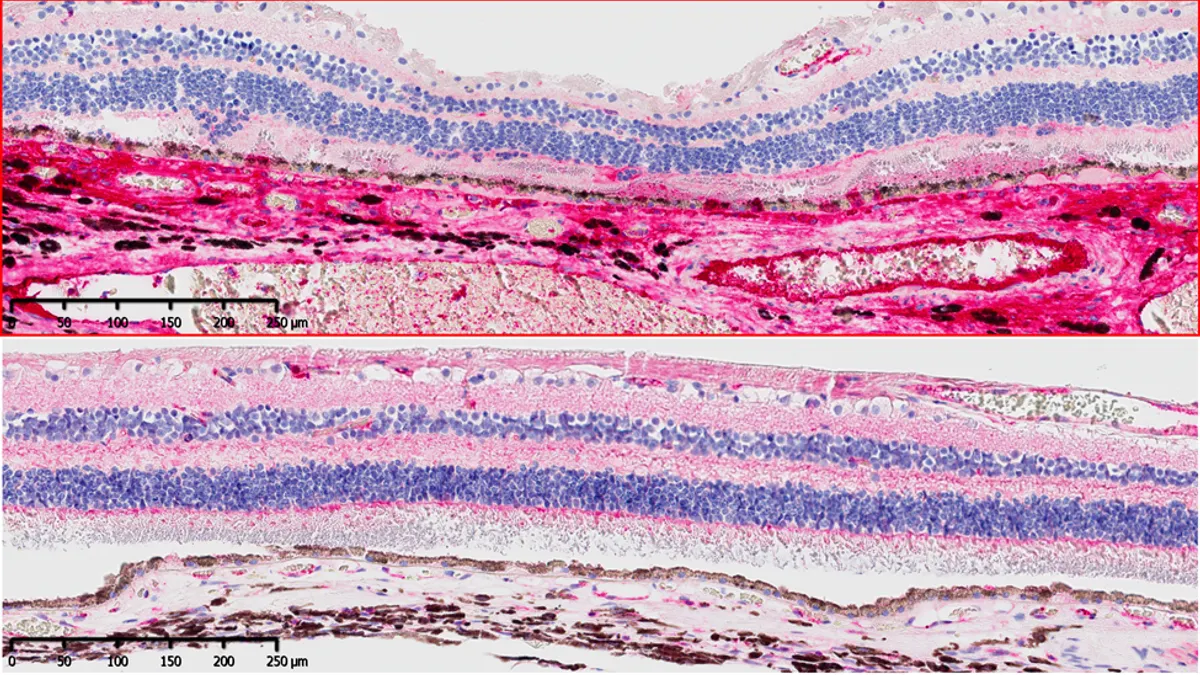Therini Bio, a startup developing a drug for Alzheimer’s disease, has raised $36 million from a group of investors that included Eli Lilly and the venture arms of both Sanofi and Merck & Co.
Headquartered in South San Francisco, the biotechnology company is targeting a protein called fibrin in an attempt to take a new approach to treating neurological and eye diseases.
Therini was co-founded in 2019 by Katerina Akassoglou, a professor at the University of California, San Francisco and senior investigator at the Gladstone Institutes. Including the new Series A funds, the company has now raised $62 million to develop fibrin-targeting drugs, with backing from the Alzheimer’s Drug Discovery Foundation and Dementia Discovery Fund.
“We believe we can make a meaningful difference with respect to the disease blockade of this particular biology and improvement in disease for patients,” said Michael Quigley, Therini’s CEO.

The company’s lead drug candidate, dubbed THN391, is an antibody designed to bind to a certain component of fibrin, a protein that’s critical to wound healing by helping clot and coagulate blood.
Normally, fibrin deposits clear in days, sometimes hours. The process goes awry when deposits build up around the blood-brain barrier or blood-retinal barrier. However, separating fibrin’s ability to repair wounds from what causes toxic buildup has presented drug developers with a problem.
Akassoglou’s work identified a portion of fibrin that’s not normally present in circulation but is “unmasked” when blood clots, Quigley said. That revealed a part Akassoglou linked to unwanted inflammation.
Therini aims to develop THN391 for use together with other Alzheimer’s drugs, similar to how oncologists employ a suite of medicines to treat cancer.
Two new Alzheimer’s medicines that work by targeting another protein called amyloid were recently approved in the U.S., although the first, Aduhelm, is little used and the benefit of the second, Leqembi, is considered modest at best. Another similar drug, from Eli Lilly, is in late-stage testing with results due soon.
But researchers see many factors contributing to Alzheimer’s development, and therefore believe different types of drugs might be needed.
“We think of it as a funnel with all of these contributing factors ultimately resulting in neuronal cell dysfunction and death,” said Howard Fillit, co-founder of the Alzheimer's Drug Development Foundation. “If we can engage the neuroprotective pathways of the cell in the face of all these many injury pathways, we might be able to have a therapeutic effect.”
Fillit, who is an observer for Therini’s board, said THN391 has the potential to stop the “inflammatory cascade” that leads to neurodegenerative disorders like Alzheimer’s.
The drug is also being studied for treatment of multiple sclerosis and eye diseases. The company expects to have clinical trial data by the end of 2024.
Investors in Therini’s Series A round also include SV Health Investors, Dolby Family Ventures and Foundation for a Better World. The company previously received a $3 million grant from the National Institutes of Health to fund its preclinical research.
















